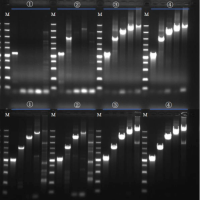Key words: Lysozyme, Recombinant Lysozyme
Description: Lysozyme (LYZ) is a low molecular weight alkaline enzyme that can hydrolyze mucopolysaccharides in pathogenic bacteria. Recombinant Human Lysozyme is and purification of recombinant human lysozyme gene in rice.
Lysozyme (LYZ) is a low molecular weight alkaline enzyme that can hydrolyze mucopolysaccharides in pathogenic bacteria. Lysozyme is a component of the normal immune defense mechanism of the body, named after its ability to dissolve bacterial cell walls. It is a glycolytic enzyme that can dissolve certain bacteria. Mainly by disrupting the interaction between N-acetyl cell wall acid and N-acetylglucosamine in the cell wall β-1,4 glycosidic bonds break down insoluble mucopolysaccharides in the cell wall into soluble glycopeptides, leading to the rupture of the cell wall and the escape of contents, resulting in bacterial dissolution. In the human body, lysozyme exists in neutrophils, monocytes, and macrophages; It also exists in mucosal secretions and becomes one of the surface defense factors. Recombinant Human Lysozyme is and purification of recombinant human lysozyme gene in rice.
Source of Recombinant Lysozyme:
Recombinant Human Lysozyme is derived from rice endosperm cells through gene recombination technology and protein purification processes
The application of recombinant lysozyme:
Recombinant lysozyme is broad-spectrum antibacterial, with good antibacterial effect on most Gram-positive bacteria, and also has antibacterial effect on Gram-negative bacteria and fungi, but the antibacterial effect is relatively poor. Molecular biology grade lysozyme commonly used to dissolve cell walls in experiments such as plasmid extraction.
Advantages of recombinant lysozyme:
Ordinary lysozyme is extracted from egg white. Recombinant lysozyme is the expression and purification of human lysozyme genes in vitro cells. It has the advantages of high activity and no animal source. More suitable for the field of biomedicine.
Storage of lysozyme:
The lyophilized powder can be stored at 4 ℃ for more than 1 year. And Below- 20 ℃ can be stored for a long time
The solubility of lysozyme in the original solution:
The highest solubility in 50% glycerol is 250mg/ml; the highest solubility in 20% sucrose is 330mg/ml; the recommended solubility concentration in ultrapure water is not more than 1mg/ml; “
The optimal reaction conditions for lysozyme:
The conditions for using lysozyme are temperature 35-39℃, pH 5.5-6.5
It is necessary to add EDTA at a concentration of less than 20 mg/mL of lysozyme to achieve synergistic antibacterial effects;
Amount use in each reaction:
The usual amount used is 1-20mg/mL, depending on the type of strain used;
Precautions for using lysozyme:
Avoid repeated freezing and thawing; it is easily inactivated under alkaline conditions; avoid high temperatures; avoid interactions with calcium and magnesium ions, while sodium ions have a certain stimulating effect on activity; avoid ionic surfactants;
Validity period of low concentration lysozyme solution: Under sterile sealing conditions, if the concentration of lysozyme is less than 1mg/mL, it should be stored at 2-8 ℃ for at least one week; It is recommended to use high concentration storage and then dilution for long-term preservation;
Factors that reduce lysozyme activity:
lysozyme is easy to inactivate under alkaline conditions; Calcium and magnesium ions also have a certain inhibitory effect on lysozyme activity;
Dissolution and preservation of lysozyme:
It is recommended to use a solution of 50% glycerol and 20% sucrose for dissolution. Normal saline and culture medium are also acceptable, but there may be a slight cloudiness. After dissolution, it is recommended to filter and sub-package with a 0.22μm filter membrane. It can be stored for 3-6 months at 2-8℃ and long-term storage at -20℃. It can be thawed before use.



